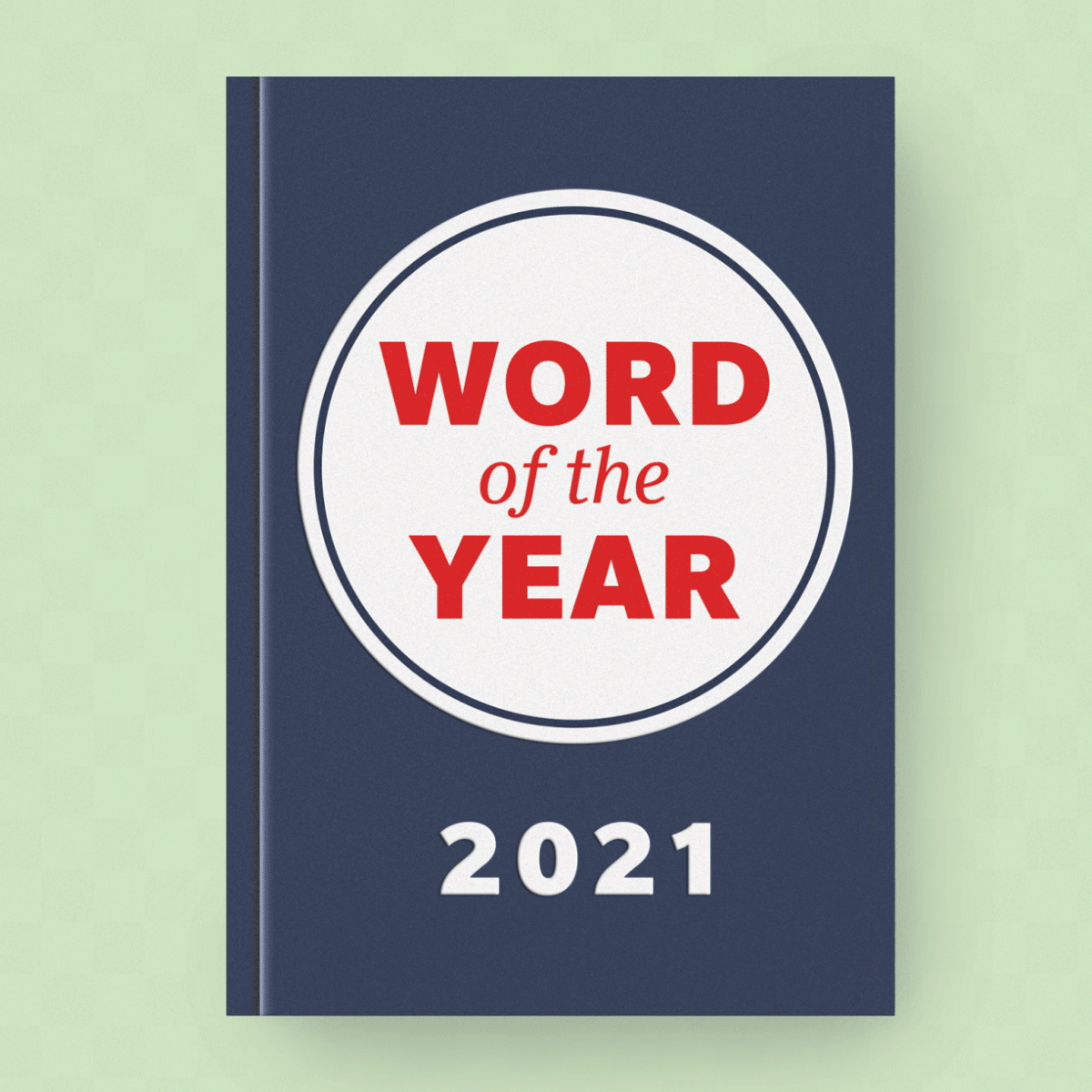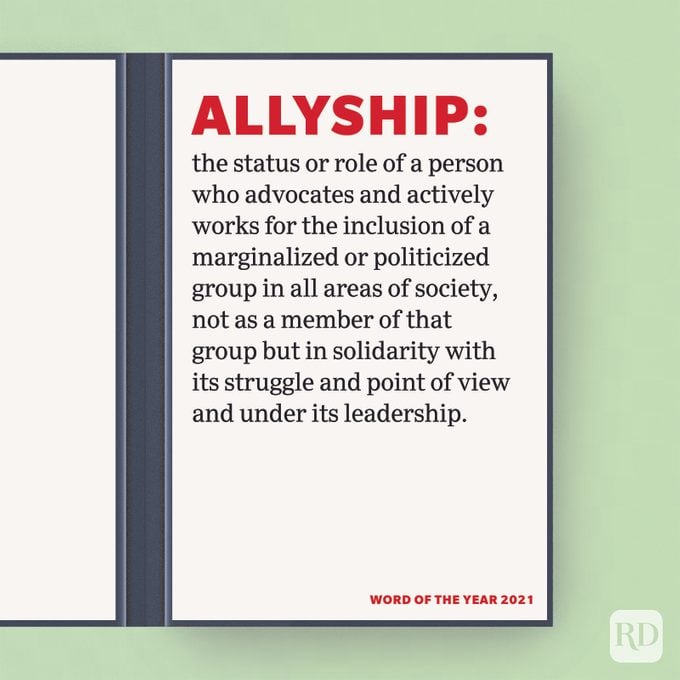This Is the Word of the Year for 2021
Updated: Apr. 09, 2024

This year's winner is a centuries-old throwback.
Each year, Dictionary.com reveals a word that often serves as a perfect snapshot of a given year. Maybe you talked about it, texted it, or read a blog about it. No matter how you encountered it, Dictionary.com’s editors say the chosen word was at the forefront of many of our minds in 2021.
What is the word of the year for 2021?
What is old is indeed new again because Dictionary.com editors proclaim “allyship”—a noun born in the mid-1800s—as the word that dominated the American English vernacular during a year that simmered with racial and political unrest after the rolling boil of the height of the Black Lives Matter movement.
Allyship, which Dictionary.com admits it only added to its online search in November, means “the status or role of a person who advocates and actively works for the inclusion of a marginalized or politicized group in all areas of society, not as a member of that group but in solidarity with its struggle and point of view and under its leadership.”
(Meanwhile, Merriam-Webster knighted “vaccine” as its word of the year 2021. According to the Centers for Disease Control and Prevention (CDC), currently, 240 million Americans have been jabbed at least once in the fight against COVID. That’s 72.4 percent of the population. Wondering if you can get your COVID-19 vaccine and flu shot on the same day? Here’s your answer.)

Why Dictionary.com chose this word of the year for 2021
Dictionary.com chose the word of the year for 2021 after many celebrities, politicians, and companies (not just black-owned businesses) took a stand against racial injustice. That was—you guessed it—allyship. (Some shows of allyship missed the mark, however, and were derided as performative allyship.)
“This year, we saw a lot of businesses and organizations, very prominently and publicly, beginning efforts to promote diversity, equity, and inclusion,” said John Kelly, a content overseer at Dictionary.com. “Allyship is tied to that. In the classroom, there is a flashpoint around the term critical race theory. Allyship connects with this as well,” Kelly added.
The pandemic also brought out non-political facets of allyship for many. As we yearned for community and a feeling of belonging, the isolative nature of social distancing forced us to forge alliances that we strongly identified with. (Like me, a work-from-home mom of a toddler who found it useful to blog about mom life and seek out mama allies on the internet.)
Other ways you’ve seen the word of the year 2021 in action
In-person or not, the workplace has an abundance of opportunities for allyship to emerge. Diversity and inclusion initiatives are the new norm, thanks to the Black Lives Matter movement. We also saw allyship during the rise of the #MeToo movement, from Hollywood to the boardroom. Consider the prevalence of the word “mansplain,” which women began to wield as a way to fight back again men speaking over them and their peers.
Before then-candidate Joe Biden selected Kamala Harris as his running mate for the presidency, Harris’ prosecutorial career came under fire. She was criticized for being a person of color who put other people of color behind bars. But her former colleague, Niki Solas, a deputy public defender in San Francisco who was a manager in the public defender’s office when Harris served as San Francisco district attorney, came to Harris’ defense. “There are many who will criticize me for this piece,” wrote Solas in an op-ed, “but I feel compelled to speak out.”
A final word on the word of the year 2021
As we move into 2022, allyship will no doubt continue to be a hot topic as marginalized people feel the added crush of inflation, health care disparities, wage gaps, and racism. True allyship means never thinking the work of standing up for someone who is down is ever over.
Emma Cusdin is the director of Global Butterflies, a consultancy firm that helps workplaces become more transgender and nonbinary friendly. Said Cusdin, allyship is “standing beside us when we need support, standing behind us when we need backup, and stepping in front when we need protection.”
Now that’s a word.
Source: USA Today, Nikis Solis, “Public defender: I worked with Kamala Harris”
